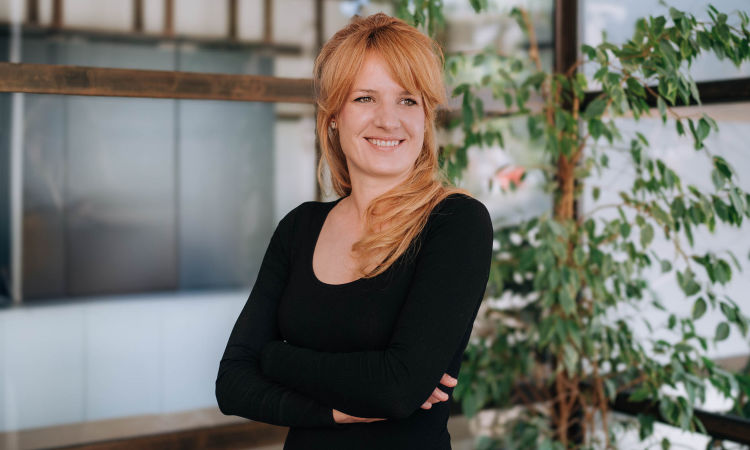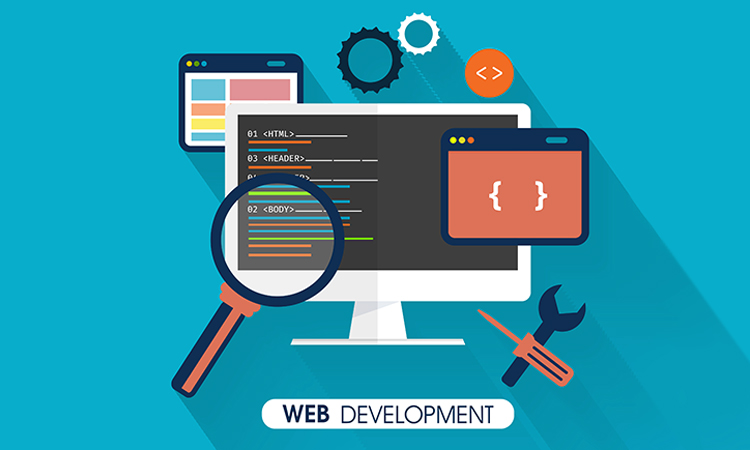Talking about software development projects and organization, it all comes down to two concepts: ownership vs. micromanagement.
BrightMarbles Group chose the first option at its inception in 2016. Our founders have been preaching employee autonomy ever since, and we’re proud to have adopted it as one of our essential values.
No matter if we’re talking about dedicated teams or team augmentation, our stance remains the same. Once all the terms and conditions of the collaboration in question have been arranged, we assign tasks and get to work.
Of course, this doesn’t mean we let our engineers handle their tasks freewheelingly. Au contraire, we advocate timely and frequent testing in Agile development.
The ownership and autonomy we have in mind refer to the sole development/testing/design process.
And to keep this policy alive, we need experienced and qualified product owners and managers, and delivery managers.
Luckily, we have a single person who embodies all this: our product and delivery manager Dunja Ibročić. This World Product Day, we’ve spoken with her on many related subjects and learned a lot about those topics.
Q: French, Product, Delivery – if we were to play a game of associations, the answer would be: YOU. Hi, Dunja, and thanks for joining us today. With your busy schedule, how are you doing both personally and professionally?
While ‘doing well’ is my typical off-hand response, I genuinely feel great after a long public holiday break. Having the opportunity to unwind, relax, and reflect has been incredibly invigorating. A bit of time away from the usual routine always gives such a refreshing perspective.

Q: True, true. Breaks are important. The reason why you’ve been invited to this interview is your interesting career path, and the recent advancements in your professional growth. Why QA in the first place? Actually, why the French studies, in which you earned a university degree?
Studying languages was the natural path after 4 years in the grammar school where French was my second language. Learning languages is like travelling through time and space, it opens so many perspectives in its own way, telling the story about the culture, native speakers and their reality and surroundings.
Q: Sure. And French culture is one of a kind. Now, why QA? Have you always been in love with technical stuff, or did you choose this niche for commercial or any other reasons?
Initially, I wasn’t yearning for much more than fulfilling my typical everyday needs. However, after five years of teaching, an urge for change started to appear. Although my thoughts still revolved around teaching and languages, I decided to explore a new path and applied for a Quality Assurance (QA) position. The primary requirement was fluency in French; everything else could be learned along the way. I was accepted, and now, here I am.
Q: How was your learning curve? Switching from humanities (languages included) to STEM can be challenging. What’s your impression?
At first, it was challenging. Learning was just a quarter of it; the organizational, cultural, and methodological ways of working were also completely different from what I was used to. So many stimulating and entirely new events happened all at once. Yet, in the end, it only took me a couple of months to feel at ease.
Ultimately, I would say it wasn’t that drastic or dramatic at all.
Q: Nice! That’s an inspiring tale for potential new QA analysts. You came to BrightMarbles as a Quality Consultant. Did you rely primarily on the experience you gained as a QA Engineer or was it something completely different?
Primarily experience, although I relied on the knowledge gained from different certificated courses and observational learning from senior colleagues.

Q: When you compare your Agile experience before and after obtaining Professional Scrum Master certificate, what changed?
On the one hand, everything seems possible, encompassing opportunities for improvement and clearer, more guided directions. On the other hand, achieving agility isn’t a simple task for organizations. If all parties involved aren’t aligned on goals and expectations, no framework can resolve the disconnect. Moreover, reaching this alignment demands a significant investment of time, which often conflicts with the demands of the market.
Q: Comparing to a Product Owner position how does it differ? What exactly do you own, the product development process, the team, or both?
While complementary, the responsibilities of the Scrum Master and the Product Owner are distinct, yet they share the common goal of delivering successful products. The Product Owner is more akin to owning clear direction, steering the product’s trajectory and guiding the entire team along the journey.
Q: At this point, you’re a Product and Delivery Manager. Congratulations on the progress you’ve made within a relatively short span of time! Now, what is the role of product & delivery manager on the project?
The primary responsibility of a product and delivery manager is to oversee the entire lifecycle of products, starting from conceptualization, through development, testing, and refinement, all the way to delivery to the customer, all the while ensuring that customer needs and expectations are understood, balanced, and met within the designated timeframes.
Q: What are some of the biggest challenges you face in this position, and how do you overcome them?
One of the biggest challenges is balancing stakeholder expectations with realistic timelines and resource constraints. To overcome this, I insist on clear communication, set achievable milestones, and maintain a flexible yet focused approach to problem-solving.
Q: What is the interplay between different roles on a single project? For instance, development team, PO (Product Owner), SM stakeholders? When is a software product considered ready for launch? Feel free to explain this with a particular project in mind.
Successful project execution requires precise coordination and timely communication. If one developer or tester lags behind with their task, the entire team will be late. This can postpone the delivery milestone or launch, which isn’t something we want.
While each team member has distinct responsibilities, leveraging the knowledge and experience of teammates can enhance the overall value delivery.
Q: Can you share a success story from one of your recent projects that highlights the importance of effective product management?
When I think of our latest projects, I can pinpoint two interesting stories: Concorde Health and AskZein.
One is Concorde Health – a personal-coach app with habit tracker we’ve tried to position differently from some other similar solutions. We’ve built this app from ground zero. The initiator behind this concept, Doctor Jeffrey Vogel – a Harvard graduate and a physiatrist – came to our company wishing to understand whether we could develop a market-ready app that would then be offered to companies that wish to keep their employees in good mental and physical shape.
Once we took over the app development process, we made an estimate, formed a dedicated development team, and adapted Scrum to this project. As a product and delivery manager, I was the go-to person for various things: from in-app features to all general aspects necessary to deliver the first iteration on time. Our previous experience on health-tech projects helped us successfully handle all the requirements of this particular client.
On the other hand, AskZein was a bit different because it’s a kind of teaching/upbringing platform and we built the technical part behind this web portal. The founder Robbie Zein is a parenting counselor who offers advice and answers to parents’ questions. Those Q&As are presented in the form of textual live feed so that the general public can also read those interactions.
My task here was to ensure seamless transition from the requirement to the development implementation. Again, Agile has been our closest companion, with certain adaptations necessary to tweak the development process.

Q: Wonderful! Thanks for sharing! Speaking of health and employee wellbeing, in the last few years, there have been many discussions regarding the position of women in the IT industry. Women paid less for the same workload, gender discrimination, harassment of different kinds… What’s your stance on those issues? Has it been hard for you to hack your way to the top?
On this matter, I wouldn’t limit my answer to solely IT industry than overall position of woman throughout all imposed roles, responsibilities and expectation. While the final solution may not yet be within reach, we’re seeing positive changes on these fronts. The narrative is shifting, shedding light on more issues, which will inevitably lead to conscious changes. I mean, I have a better life, both professionally and personally, than my female ancestors. I believe our kids will see even more improvements compared to my generation. But it’s an ultramarathon, not a sprint, and we’re ready to run this race to the finishing lines.
Q: In honor of World Product Day, can you share what this day means to you and the product management community?
World Product Day emphasizes the significance of understanding and meeting user needs while freeing and nurturing creativity and innovation for positive impact. We make sure to take care of these things in our daily tasks but it’s nice to stop for a while and give our product management efforts a mindful revision. World Product Day is a perfect chance for such self-reflection.
Q: That wraps up our questions. Thank you for the wonderful conversation and insights. Do you have any tips for aspiring product and delivery managers, regardless of gender?
Strive for balanced decision-making, weighing options carefully to align with overarching goals. Foster diplomatic relationships both within and outside your team, fostering collaboration and smooth communication.
Prioritize effectively, recognizing that not all challenges can be addressed simultaneously; instead, focus on tackling one critical issue at a time to ensure steady progress.
About Dunja
Dunja Ibrocic is a BrightMarbles Product and Delivery Manager with over seven years of experience working on complex projects. From her beginnings in Quality Assurance to Scrum certifications and product management responsibilities, Dunja now plays numerous roles, guiding software products from scratch to delivery.
